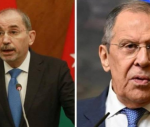You are here
Assad’s Moscow visit — what does it change?
Oct 25,2015 - Last updated at Oct 25,2015
What does Syrian President Bashar Assad’s visit to Moscow signify? Why hadn’t Assad visited President Vladimir Putin earlier? And why has Russia declared this visit? With the recent ground shifts in Syria after the powerful Russian military intervention new facts have emerged to confirm that the Russian move was not arbitrary, rather it was systematic and pointed to a new roadmap that begins by setting the military balance on the ground.
Logically, turning Russia into an efficient regional counter-terrorism coordinator will qualify it to be an essential cornerstone in the Middle East’s overall political equations later. Ruling the anti-terrorism scene will automatically grant Russia an opportunity to unleash the initiative, and allow Moscow to have the most efficient call for a possible political solution in Syria. It is also noteworthy that the dynamic Russian diplomacy reflects the clarity in Moscow’s vision, which seeks to achieve a political solution in Syria. Moreover, it also refers to its ability to fill the void left by the absence of any clear strategy by the United States and its allies in the past years.
The announcement of Assad’s visit to Moscow after the Russian military intervention can be seen as a marketing campaign for the political process according to the Russian vision. The Syrian president’s Moscow visit came after a radical change in the positions of most of the regional and international parties that have recently shown obvious flexibility regarding the immediate departure of Assad. Therefore, Putin’s invitation to the Syrian president serves to break the taboos that might block the start of any actual move in the political process.
The Syrian president appears alone in the photos released by the Kremlin, while Putin is seen with his defence and foreign ministers, which indicates that the focus of the visit is Assad himself and his role in the political solution process.
Putin has hinted in several key statements that the Russian military operations should open the gate to start this process, which means that there are some merits that will coincide with the Russian military achievements on the ground.
Putin has called the leaders of Saudi Arabia, Turkey, Egypt and Jordan to inform them about the outcome of Assad’s visit. Previously, the Russian president also began to build a regional work group for the political solution process based on changing the attitudes of some countries, and encouraging others to adopt more positive attitudes.
According to some experts, the Russian message was preceded by some Syrian messages that were sent to several Arab and Gulf countries with the exclusion of Turkey and Qatar. The messages, in essence, were positive and also stressed Syria’s enhanced vision for Egypt’s role in shaping a political solution.
Assad’s visit to Moscow means that the region will witness intensive diplomatic mobility; thus, it was normal to have Russia and the United States appearing together once again in Vienna after previously appearing in Doha. Both the US and Russian foreign ministers had joint meetings with their Turkish and Saudi counterparts in a new attempt to persuade both parties that it is necessary to set new ground for change and understanding.











